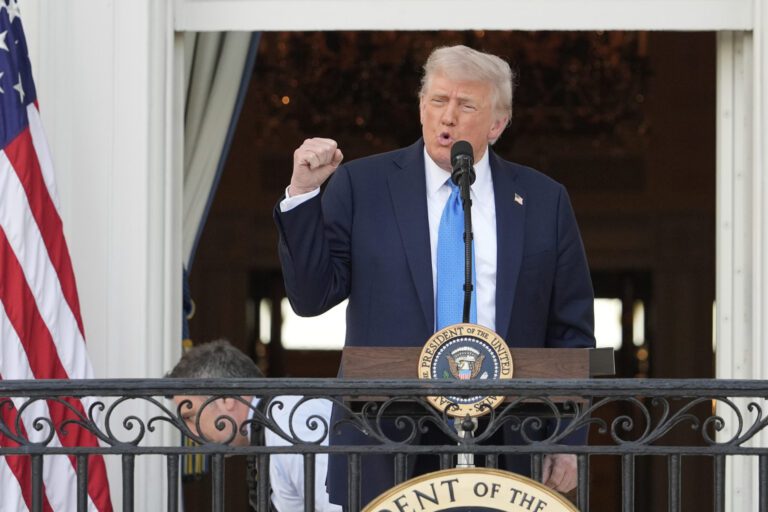New Travel Restrictions Announced by President Trump: Impact and Legal Ramifications
On Wednesday night, President Trump unveiled new travel restrictions that could spark significant legal battles in the United States. Beginning Monday, the entry of citizens from 12 countries will be banned, while seven nations will experience partial restrictions. This decision comes on the heels of a recent antisemitic attack in Boulder, Colorado, underscoring the administration’s concerns about national security.
Impact of the New Travel Restrictions
President Trump highlighted the need for heightened security measures in his video address. He stated, "The recent terror attack in Boulder, Colorado, has underscored the extreme dangers posed to our country by the entry of foreign nationals who are not properly vetted." He emphasized that the United States must avoid what has been seen in Europe regarding unchecked migration.
Countries Affected by the Travel Ban
Here’s a breakdown of the countries affected:
-
Complete Travel Ban: Citizens from the following 12 countries will be prohibited from entering the United States:
- Afghanistan
- Burma
- Chad
- Republic of the Congo
- Equatorial Guinea
- Eritrea
- Haiti
- Iran
- Libya
- Somalia
- Sudan
- Yemen
- Partial Restrictions: Citizens from these 7 countries will face limitations:
- Burundi
- Cuba
- Laos
- Sierra Leone
- Togo
- Turkmenistan
- Venezuela
These restrictions vary by country and are determined based on visa overstay rates and criminal background checks.
Quotes from President Trump
While addressing the public, President Trump said:
"In my first term, my powerful travel restrictions were one of our most successful policies and they were a key part of preventing major foreign terror attacks on American soil."
He reiterated that open migration from countries lacking rigorous vetting processes is not an option.
The Legal Landscape Ahead
As seen during Trump’s prior travel ban, the new restrictions are likely to face legal challenges from various states and advocacy groups. The 2018 Supreme Court case, Trump v. Hawaii, affirmed the president’s authority to impose such restrictions, reiterating the importance of national security. Chief Justice Roberts stated that these actions were consistent with immigration law.
Possible Changes to the List
President Trump mentioned potential flexibility, allowing countries to improve their vetting processes. If "material improvements" are made, nations could be removed from the list. Conversely, the travel ban could expand if new concerns arise.
Conclusion
President Trump’s latest travel restrictions reflect ongoing national security concerns while evoking memories of past legal skirmishes surrounding immigration policy. As these measures come into effect, the potential for a contentious legal landscape looms large. Observers will be watching how these restrictions unfold and the subsequent responses from various stakeholders.
For further details on immigration laws and travel restrictions, visit U.S. Citizenship and Immigration Services. For information on related legal cases, check out the American Civil Liberties Union.
By following this structured format, the article provides a comprehensive overview of the newly announced travel restrictions while utilizing SEO-friendly practices, including targeted keywords and external links.


